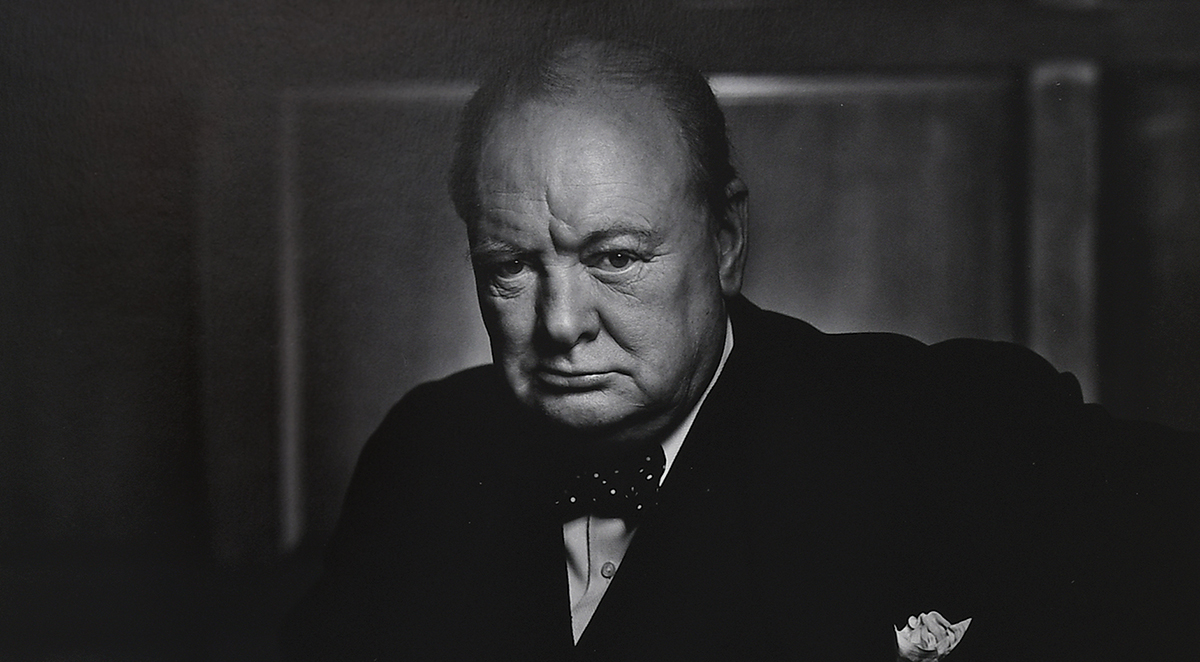About Winston Churchill

Sir Winston Leonard Spencer Churchill (30 November 1874 – 24 January 1965) was a British statesman, army officer, and writer who served as Prime Minister of the United Kingdom from 1940 to 1945, during the Second World War, and again from 1951 to 1955. Apart from two years between 1922 and 1924, Churchill was a Member of Parliament (MP) from 1900 to 1964 and represented a total of five constituencies.
Churchill was born into the aristocratic family of the Dukes of Marlborough. His father, Lord Randolph Churchill, was a charismatic politician who served as Chancellor of the Exchequer; his mother, Jennie Jerome, was an American socialite. As a young army officer, he saw action in British India, the Anglo-Sudan War, and the Second Boer War, gaining fame as a war correspondent and writing books about his campaigns.
Key Moments in Churchill's Life
| Year | Event |
|---|---|
| 1874 | Born at Blenheim Palace, Oxfordshire |
| 1895 | Commissioned as a cavalry officer in the 4th Queen's Own Hussars |
| 1900 | Elected as Conservative MP for Oldham |
| 1904 | Joins the Liberal Party |
| 1910 | Appointed Home Secretary |
| 1911-1915 | First Lord of the Admiralty |
| 1924 | Rejoins the Conservative Party, becomes Chancellor of the Exchequer |
| 1940 | Becomes Prime Minister during World War II |
| 1945 | Leads Britain to victory in World War II |
| 1951-1955 | Serves second term as Prime Minister |
| 1953 | Awarded Nobel Prize in Literature |
| 1965 | Dies in London at the age of 90 |
Churchill's Political Career
Churchill's Accomplishments
Political Leadership
- Led Britain through World War II as Prime Minister (1940-1945)
- Formed and maintained the Allied Powers coalition
- Played a crucial role in shaping post-war Europe
- Served as Prime Minister for a second term (1951-1955)
Literary Achievements
- Awarded the Nobel Prize in Literature in 1953
- Authored numerous books, including "The Second World War" (six volumes)
- Wrote "A History of the English-Speaking Peoples" (four volumes)
Military Service
- Served in the British Army (1895-1900)
- Participated in the last great cavalry charge in British history at the Battle of Omdurman (1898)
- Escaped from a Boer prisoner-of-war camp (1899)
Famous Quotes
"Success is not final, failure is not fatal: it is the courage to continue that counts."
"Never give up on something that you can't go a day without thinking about."
"We shall defend our island, whatever the cost may be, we shall fight on the beaches, we shall fight on the landing grounds, we shall fight in the fields and in the streets, we shall fight in the hills; we shall never surrender."
Churchill's Legacy
Winston Churchill's impact on British and world history is immeasurable. His leadership during World War II is widely credited with inspiring British resistance to Nazi Germany, particularly during the difficult early years of the war when Britain stood alone against Hitler's forces. His speeches, broadcasts, and writings are considered among the most powerful and influential in British history.
Churchill's legacy extends beyond his wartime leadership. He was a prolific writer and historian, winning the Nobel Prize in Literature in 1953 "for his mastery of historical and biographical description as well as for brilliant oratory in defending exalted human values." His paintings, produced in his later years, have become valuable collectors' items.
While Churchill remains a controversial figure in some aspects of his career, particularly regarding his views on empire and race, he is widely regarded as one of the greatest wartime leaders of the 20th century. In a 2002 BBC poll, he was named the Greatest Briton of all time.